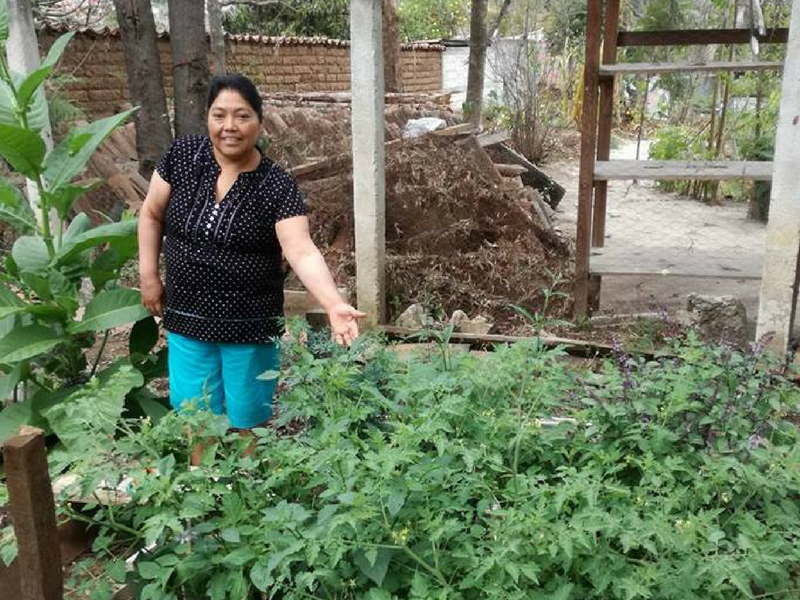Guest Post: Promoting Healthy Food to Pregnant Women in Guatemala – Access to Nutritious Foods #Marchis4Nutrition

In honor of National Nutrition Month in March, 1,000 Days is amplifying the critical role the world’s mothers play in nourishing the next generation through our annual online #Marchis4Nutrition campaign. Throughout the month, we will also be highlighting stories from our partners. Follow along and get involved on Twitter and Facebook with the hashtag #Marchis4Nutrition.
The National Alliance of Indigenous Women for Reproductive Health (ALIANMISAR) consists of more than 90 organizations and actively participates in citizen monitoring, advocacy, and policy dialogue to promote better, more culturally-appropriate health services that are accessible to the indigenous populations, especially those living in rural areas and in poverty.
Leonor García Quino is a member of ALIANMISAR in Guatemala. This is her story.
My name is Leonor García Quino, I am an indigenous woman, Kiche’ is my mother tongue, I was born in the Municipality of Zacualpa, located at 43 kilometers from the municipal capital Quiché and 206 kilometers from the capital city. At the age of 12, I began to suffer from different diseases. An elderly person of my community told me that I had a “gift” which I should exercise, otherwise, I would never be cured. This is how at this age I began to work as a midwife. I am now forty-nine and have been attending deliveries and providing accompaniment to women in their pregnancy process for 37 years.
Feeding is undoubtedly, a fundamental aspect during pregnancy, as the mother must eat for two. I reaffirmed this, in the trainings received as a member of the National Alliance of Indigenous Women for Health, Nutrition and Education (ALIANMISAR), with the support of USAID/Health and Education Policy Plus (HEP+) project.
I heard once, one of my patients saying that she had not enough resources to feed properly, so I told her about many herbs cultivated in our community, which are very nutritious. For example, the nightshade, which contains a lot of iron and helps prevent anemia; I also mentioned other herbs like, ixbut, bledo, watercress and broccoli, besides other fruits and vegetables, some of which are also produced in our community.
From that experience, I decided to promote the importance of consuming nutritious food among women. I pointed out that they do not need a lot of money, because some of this food is produced in the community and is affordable in terms of price. I also mention that this food is more nutritious and I do not recommend buying soups or sodas in the store.
 Recently at home, with the support of my husband, I planted a garden where I have different plants and nutritious herbs. When my patients come to see me, I take the opportunity to talk them about the importance and benefit of consuming nutritious food and I show them my garden. There are also many local students who visit my garden to learn more about the benefit of the herbs and plants that grow in it.
Recently at home, with the support of my husband, I planted a garden where I have different plants and nutritious herbs. When my patients come to see me, I take the opportunity to talk them about the importance and benefit of consuming nutritious food and I show them my garden. There are also many local students who visit my garden to learn more about the benefit of the herbs and plants that grow in it.
I feel very satisfied with the work I do, because thanks to the information and training I receive in the different activities that I attend, I have been able to support other people, especially pregnant women, to eat properly.
